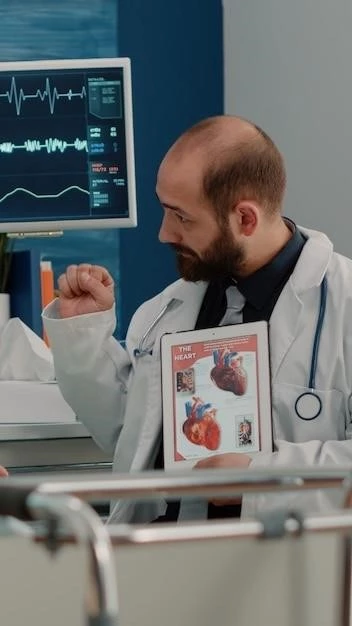Symptoms of Cardioauditory Syndrome of Sanchez-Cascos
Recognizing symptoms like chest pain, shortness of breath, dizziness, or fainting is crucial. Seek medical help promptly.
Common Symptoms
Common symptoms of Cardioauditory Syndrome of Sanchez-Cascos include palpitations, fatigue, and irregular heartbeats. If you experience these, consult a healthcare professional for proper evaluation and management.
Causes of Cardioauditory Syndrome of Sanchez-Cascos
Genetic factors and environmental triggers can contribute to the development of this syndrome. Understanding the underlying causes is essential for effective treatment.
Genetic Factors
Genetic mutations or inherited conditions may play a role in Cardioauditory Syndrome of Sanchez-Cascos. Consult with a genetic counselor for insights on familial risk factors and potential genetic testing options to better understand the genetic component of this syndrome.
Environmental Triggers
Environmental factors like smoking, poor diet, and stress can exacerbate Cardioauditory Syndrome of Sanchez-Cascos. Adopting a healthy lifestyle, minimizing exposure to toxins, and managing stress can help reduce the impact of these triggers on your cardiovascular health.
Diagnosis of Cardioauditory Syndrome of Sanchez-Cascos
For accurate diagnosis, consult a healthcare professional for a thorough medical history review and diagnostic tests.
Medical History and Physical Examination
Providing a detailed medical history and undergoing a comprehensive physical examination are vital steps in diagnosing Cardioauditory Syndrome of Sanchez-Cascos. Be thorough and open with your healthcare provider to ensure an accurate assessment of your condition.
Diagnostic Tests
Diagnostic tests such as electrocardiograms, echocardiograms, and blood tests can help confirm Cardioauditory Syndrome of Sanchez-Cascos. Follow through with your healthcare provider’s recommendations for a proper diagnosis and treatment plan tailored to your needs.
Treatment Options for Cardioauditory Syndrome of Sanchez-Cascos
Discuss medication and surgical interventions with your healthcare provider for effective management.
Medication
Medications like beta-blockers, antiarrhythmics, or blood thinners may be prescribed to manage Cardioauditory Syndrome of Sanchez-Cascos. Adhere to your treatment plan and discuss any concerns with your healthcare provider to optimize your treatment outcomes and quality of life.
Surgical Interventions
Surgical procedures like pacemaker implantation or ablation therapy may be recommended for Cardioauditory Syndrome of Sanchez-Cascos. It’s essential to discuss the risks, benefits, and potential outcomes with your healthcare team to make informed decisions about your treatment plan.

Prognosis of Cardioauditory Syndrome of Sanchez-Cascos
Understanding the long-term outlook and potential complications is crucial. Keep open communication with your healthcare team.
Complications
Complications of Cardioauditory Syndrome of Sanchez-Cascos may include heart failure, stroke, or arrhythmias. Regular monitoring and following your treatment plan diligently are vital in managing these potential complications and maintaining heart health.
Long-Term Outlook
Managing Cardioauditory Syndrome of Sanchez-Cascos effectively can lead to a better long-term prognosis. Adhere to lifestyle changes, medications, and follow-up appointments to optimize your heart health and well-being for the future.
Research Advancements in Cardioauditory Syndrome of Sanchez-Cascos
Stay informed about current studies and emerging therapies to benefit from the latest treatments.
Current Studies
Engage with ongoing research studies investigating new treatments and advancements for Cardioauditory Syndrome of Sanchez-Cascos. Participating in clinical trials or following research outcomes can offer valuable insights into potential future options for managing the condition.
Emerging Therapies
Explore innovative treatments and therapies on the horizon for Cardioauditory Syndrome of Sanchez-Cascos. Keep updated on medical advancements and consult with your healthcare provider to consider new approaches that may enhance your overall care and well-being.
Lifestyle Management for Cardioauditory Syndrome of Sanchez-Cascos
Focus on optimal diet, regular exercise, and stress management to improve your heart health and overall well-being.
Diet and Exercise
Maintain a heart-healthy diet rich in fruits, vegetables, whole grains, and lean proteins. Combine this with regular exercise to support your cardiovascular system and overall health. Consult with a healthcare provider or a nutritionist to create a personalized plan that suits your medical needs and lifestyle.
Stress Management
Implement stress-reducing techniques such as meditation, yoga, deep breathing exercises, or seeking professional counseling. Managing stress is key in improving heart health and overall well-being. Find what works best for you and prioritize self-care to enhance your quality of life.
Support Resources for Cardioauditory Syndrome of Sanchez-Cascos
Join patient support groups and consider counseling services for emotional and mental well-being.
Patient Support Groups
Connect with patient support groups to share experiences, gain insights, and receive emotional support from individuals facing similar challenges with Cardioauditory Syndrome of Sanchez-Cascos. Building a support network can help you navigate this condition more effectively and feel less isolated on your journey to better health.
Counseling Services
Seeking counseling services can provide emotional support, coping strategies, and help you manage stress related to Cardioauditory Syndrome of Sanchez-Cascos. A mental health professional can assist in addressing anxiety, depression, or any psychological challenges that may arise, promoting overall well-being alongside your medical care.
